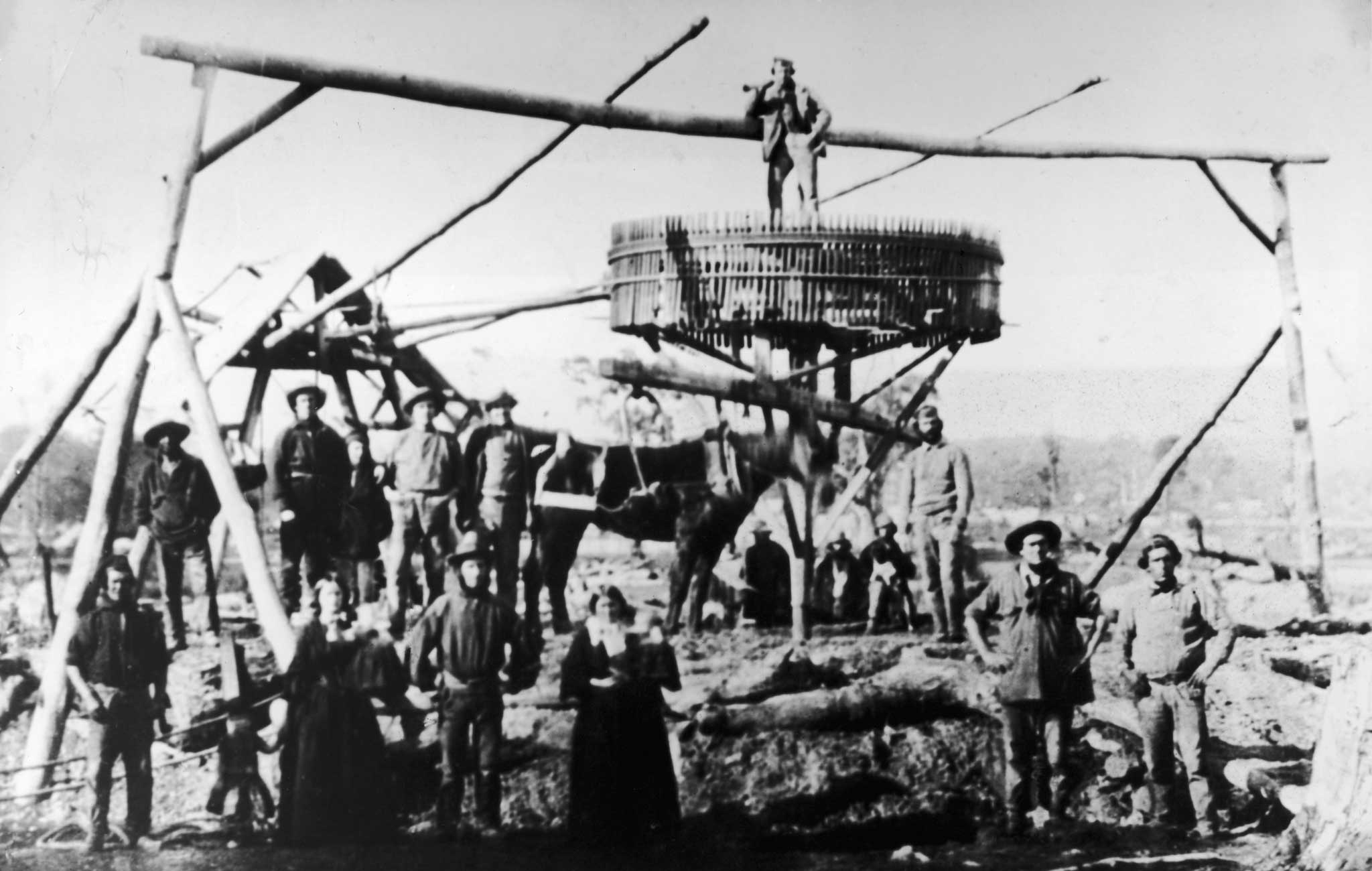The Forgotten Rebels of Eureka by Clare Wright; book review

‘I had an offer a few days after landing from a gold digger, with £600-700. Since that I have had another from a bushman with £900,’ So wrote a young British serving girl, just arrived in the gold fields of Victoria in the 1850s. She meant offers of marriage, rather than work. There was a shortage of women, so a young, single girl could do much better on the marriage market than she ever could in Britain. As she put it, ‘I have so many chances’.
As the men rushed to the gold fields around Melbourne, so did the women. They ran shops and public houses, kept brothels and theatres, worked as servants and raised families, wrote petitions to government. Shops sold breast pumps and expensive baby clothes, nursemaids took up occupation at balls so women could leave their children with them. A young Irish orphan called Harriet accompanied her brother to dig after cutting her hair and dressing up in a felt hat, a tunic and miners’ boots – thus ‘parting with my sex for a season’ in Ballarat, a settlement about 65 miles from Melbourne. But as Clare Wright so effectively shows in her fascinating new book, winner of the 2014 Stella Prize for Australian women’s writing, the story of the Victoria gold diggers – and the tale of the Eureka rebellion against British forces, a vital part of Australia’s national consciousness, has been repeatedly codified and told as a story about men.
After long-simmering tensions between the Victoria miners and the British government, the death of a Scottish miner at the Eureka hotel in Ballarat at the end of 1854 set the tinder box alight. Within a few weeks, 10,000 miners met at Ballarat, demanding abolition of the hated miners’ licence and male suffrage. There were skirmishes, the bloody Battle of Eureka Stockade on 3 December and miners put on trial. But their voices were too loud to be ignored. On Friday 24 November 1857, all white males were granted universal suffrage.
Wright is a Sydney-based historian and TV presenter, who has already written successfully on Australia’s female publicans and she puts women front and centre in the story. Even men at the time commented on the thousands of women there. ‘There are some hugely fat women on the diggings,’ wrote one traveller cheerfully, ‘the life seems to suit them’. Wright is particularly good on the travails of childbirth in the tented community, the horrors of the three month journey from Britain – and also two doughty Anglo-Irish wives who set up a shop, selling the ‘best quality’ tea, coffee , sugar, candles, tobacco, jams, bottled fruits, onions and apples and ‘some excellent small Cheshire cheeses’. They weren’t the only ones: a Mrs Wintle advertised that her shop sold silk, satin, cashmere and French kid boots. Women flourished, despite the tough conditions: in 1850, the Ballarat registers noted a single birth, by 1854, there were 404.
Wright has scoured the archives in Victoria and her book is a wonderful, weighty tribute to the women of the Victorian minefields. The book is beautifully researched and full of vivid colour, engaging characters and dramatic reconstruction. Like many historians of women, she is sometimes hampered by the fact that her subjects haven’t left many writings behind them, and sometimes one has to guess or find them through records and descriptions left by men. She deals with this by writing in an evocative, even imaginative style, sometimes addressing the reader directly as ‘you’, putting us in the position of an imaginary Ballarat resident in the 1850s: ‘It’s still hard to fathom that your Christmas dinner will be consumed under the blaze of the southern sun’. Some traditional readers might find this confusing. For me, it added to the cinematic courage of The Forgotten Rebels: a book with as much verve, energy and indomitable spirit as the digger women themselves.
Kate Williams’ Storms of War is out now from Orion
Join our commenting forum
Join thought-provoking conversations, follow other Independent readers and see their replies
Comments
Bookmark popover
Removed from bookmarks